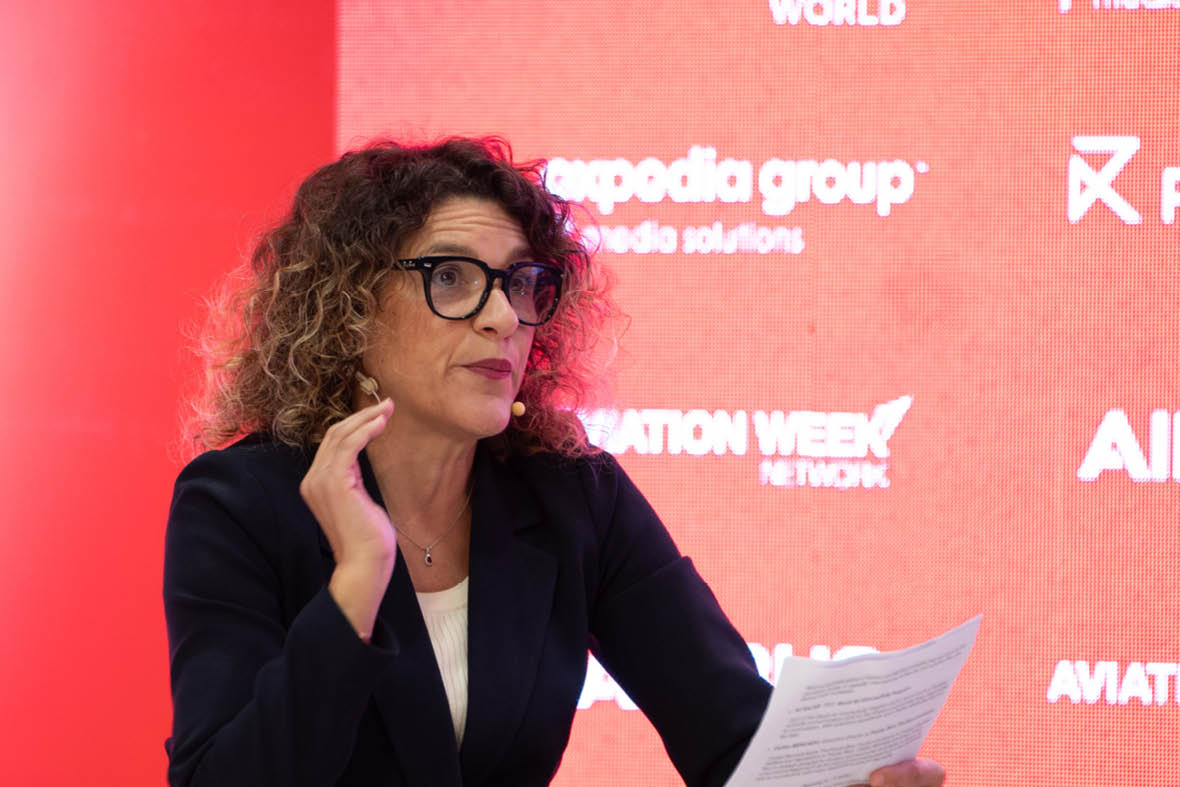Travellers want to be better informed on sustainability options when planning travel, but the industry has not provided consistent information
“We need a significant commitment to education on sustainable strategies,” said Expedia Group Senior Director of Business Development Andrew van den Feltz, noting that “70% of people can’t find the sustainable travel options that they are looking for”.
Expedia.com is using badging for eco-sites and carbon emission rankings to provide travellers with better information during searches.
“We need to create a consciousness with travellers about sustainability,” said Maria Elena Rossi, Global Marketing and Promotion Director for ENIT, The Italian Government Tourist Board. “The work of the World Travel and Tourism Council (WTTC) on this is critical.”
WTTC Senior Vice-President Maribel Rodriguez said the travel industry’s revenue will jump to US$15.5 trillion by 2033, by which time it will employ 430 million people worldwide. But: “Our sector lacks education to solve problems” about sustainability, she said.
Puerto Rico Tourism Company Executive Director Carlos Mercado called for an overhaul of governments’ approach to sustainability. “You have to restructure how the government works — new laws, new approaches — and that’s difficult,” he said.
“The government can’t do it alone,” Mercado said. “You have to work closely with the private sector so we [the government] become the coordinator and not the regulator.”
Unifying regulations across continents should be a major priority, said Ali Rajab, CEO of Saudi Air Connectivity Program. “If the pandemic has shown us anything, it’s that it’s important for countries to have unified [sustainability] rules. Harmonising ICAO is going to help all entities. We need more easing of regulations also to allow cooperation on sustainability.”
SAF goals are critical for governments to achieve green targets, but in Latin America there is not a single refinery that is certified to produce SAF, said IATA Regional Vice President – Americas Peter Cerda. “Governments are now very slow in the Americas to implement change, which makes SAF development much longer than it should be.”
Yolanta Strikitsa of Strikitsa Consulting added that lead times for sustainable fuel are horrendous. “If you place your order for SAF, it’s five years until it’s delivered,” she said.
Luis Felipe de Oliveira, Director General of ACI World, called on ICAO to create a global framework for SAF development “to ensure we are investing in all countries and producers. Without government support we won’t get to the 2050 climate goals.”
Rossi said her country is using the upcoming rush of people to the 2026 Winter Olympics in Milan to diversify tourism and promote sustainability in northern Italy. “We have new practices for dispersing Olympic events, working with regional cities,” she said.
Italy will deliberately locate events in neighbouring cities and regions so Milan does not become overburdened. While some events will take place in Milan, many will be held in Cortina, Italy, and some, such as bobsledding and luge, will be held in another European country.
“Italian cities need better growth management strategies,” she said. For example: “Venice of course faces problems with unbalanced tourism, Florence also.”
Expedia has launched an online Travel Foundation to help destination management organisations (DMOs) develop sustainability plans. “We can see how people add filters or not” to their online searches, said van der Feltz. “The actual explanation of what a traveller should receive on sustainability must be consistent across all platforms.”
Mehmet Keyvan, CEO of Keyvan Aviation, said aviation must pay attention to daily airline operating efficiencies if sustainability targets are ever to be reached. “Taxi in and out time now can be 40% of the flight time on short-haul [flights], so we have to manage all the stakeholders to ensure the journey is efficient,” he said.
Prioritising sustainability at the government level remains a leading goal. “Sustainability is our top strategy after the pandemic,” Mercado said proudly of Puerto Rico’s restructured goals.
“We worked with WTTC to measure everything – what we already knew and what we didn’t know. Honest measurement of what you’re doing right and wrong is everything,” he said. “You have to be honest about what you need to improve.”



